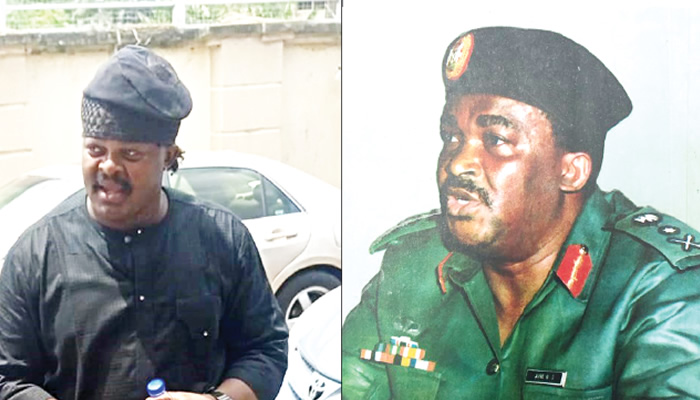THE AFRICA REPORT
As you read this, over 20,000 Nigerians have signed a petition on Change.Org calling on the US, the EU, and the UK to place a visa restriction on transport kingpin Musiliu Akinsanya aka MC Oluomo. He is accused of orchestrating the violence that took place on the 18 March governorship election in Lagos State where many Igbo people were attacked and prevented from voting.
In a video clip that went viral on the eve of the keenly contested poll, MC Oluomo, who has a reputation for violence and was once declared wanted over a fracas that left two people killed, said in clear terms that the Igbo people who had no intention of voting for the ruling All Progressives Congress (APC) should sit at home on the day of the election. However, he later backtracked, saying he was only joking.
This would not be the first time MC Oluomo would target the Igbo people for attack. The transport kingpin, who is also a member of President-elect Bola Tinubu’s campaign council and a state government official, had accused the Igbo of plotting against Tinubu’s victory last year.
Calls for visa restriction
After what was unarguably the most violent election that Lagos State had ever witnessed since the 4th Republic, many are now calling for a visa restriction on MC Oluomo.
There is a catch though.
His aides boast that he is an American citizen, and that MC Oluomo’s children all attend school in the US. He has, on one occasion, even been the special guest of Governor Brian Kemp of Georgia.
Apart from MC Oluomo, Nyesom Wike, whose opponents have come under violent attacks, is also a subject of a petition on Change.Org. Over 267,000 Nigerians have signed on for the West to hit him with a visa ban following the violent presidential election of 25 February where there was heavy voter suppression.
In the run-up to the presidential poll, Wike signed a controversial executive order that would give him sole powers to approve political activities in his state. His feud with former Vice-President Atiku Abubakar was so heated that the latter had to cancel his plan to campaign in the state due to the ensuing violence.
So far, the US, UK and EU have only condemned the violence, but have refused to mention any names as usual.
‘Mystery justice’
Now, imagine a scenario where a government issues a statement accusing some billionaire businesspersons of tax fraud and then claims to have sanctioned them, but refuses to reveal their identities.
Consequently, the media is left to speculate on the identities of those affected and all manner of conspiracies are allowed to fester. Could this approach of ‘mystery justice’ actually deter future tax evaders? Certainly not!
Even so, this is what has been happening in Nigeria after the US, the UK, and other Western nations introduced the visa restriction policy for perpetrators of electoral violence in 2015.
Ahead of the keenly contested 2015 poll between incumbent President Goodluck Jonathan and General Muhammadu Buhari, then US Secretary of State John Kerry vowed to deny entry to anyone responsible for stoking violence during the election.
For some, this novel approach, along with the signing of a peace accord, may have done the trick as the poll that was eventually held in late March was far more peaceful than the previous 2011 election that led to the loss of at least 800 lives. President Jonathan’s decision to congratulate candidate Buhari even before the final results were announced roused attention across the country.
However, by 2019, the threat of visa restriction had lost its sting as politicians brazenly gave the West the middle finger.
…A month to the 2023 elections, US Secretary of State Anthony J. Blinken ‘revealed’ in a statement that Nigerians who perpetrated electoral violence in a previous poll had been hit with visa restrictions and that those who engaged in similar acts of brutishness in the forthcoming poll would be slammed with visa restrictions.
As usual, the US toed the clichéd path of failing to reveal the identities of those it had hit with visa ban. This again left room for speculation even as reports stated that some Supreme Court judges as well as Governor Bello were among those barred.
Repeated inquiries by the media to ascertain the identities of those hit with the visa restriction have elicited the same automated response: “Regarding questions about visas, due to US privacy laws, visa cases are considered confidential and we do not discuss private cases.”
‘Nebulous policy’
However, this is nothing other than double standards and a selective application of a nebulous policy. What the US failed to mention is that it has been revealing the identities of those slammed with visa restrictions in countries like Russia and Nicaragua.
In the case of Russia, all those close to President Vladmir Putin as well as their families were slammed with visa restrictions. The President of Nicaragua, Daniel Ortega, and his appointees, including judges, have been hit with sanctions for… wait for it… electoral fraud and rights abuse.
For the visa restriction to work, the US and its allies need to reveal the identities of those affected as this will serve as a deterrent to others. Secondly, the assets of the many Nigerian politicians who hold foreign citizenship should be traced and frozen. Anything short of this will not suffice.
Finally, the US and its allies need to stop using the minimum standard to measure the success of African elections…



Connect with us on our socials: